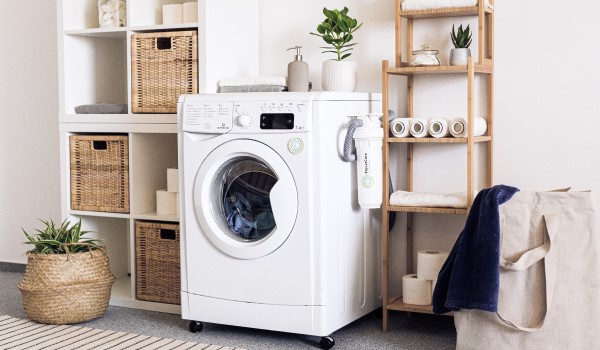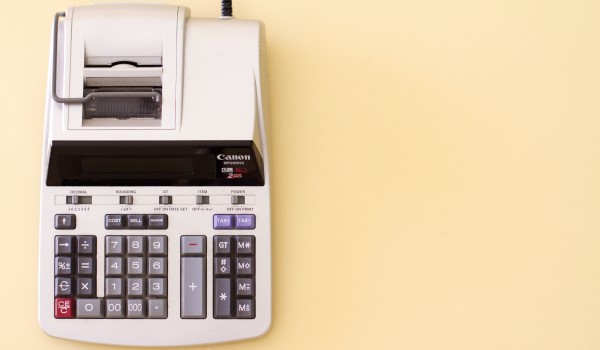Whether you’ve already got some savings on the go, or you’re starting from scratch, one thing is certain – we all want to know how to save money as speedily as we can so we can afford the things that matter to us. From paying for a gap year to learning how to save for a house deposit to funding your retirement, our tips on how to save money will help you top up your savings pot that bit faster. How to save money fast? We’ve got you.
Setting your financial goal
Your end financial goal is the target you want to get to but it’s usually a life goal that requires money to get there. It can be as simple as needing to save £100 or as large as wanting to save for a house deposit. Like any goal, it's something you really want or need and you're putting in a plan to get there. Read more about how to make your goals SMART in how to set financial goals.
Setting a budget
Setting a budget can help keep your spending under control. Start by listing all your essential outgoings (i.e. bills, gym membership, phone contract) and then see what’s left over. This is your disposable income, which you can spend, save, or split between the two. There are different ways of deciding how to manage your disposable income, such as the 50/30/20 method so it's worth reading up on that.
If you need help on how to make a budget then we’re here to help, we have a handy online budget planner or, if you prefer to write things down pen to paper, we have a downloadable PDF budget planner that you can print off. Finally, if you’re an arty type, check out our creative ways to budget for some bullet-journal inspired ways to track your spending and saving.
Reducing your energy bills
We’ll caveat this with ‘as much as possible in the post April 2022 climate’ as it’s becoming increasingly more difficult for everyone to control how much their energy and utility bills are going to be each month.
- Always switch off lights (and change to LED bulbs!) and plugs when they’re not in use.
- If you want to cut back on using your heating and you’re sitting in one room, grab a blanket and a hot water bottle to watch your favourite series with. You’ll stay cosy but will save money on heating the whole house.
- If you do need the heating on, then try a degree or two lower than you usually would as this will affect your bill in a positive way.
- Remember to close internal doors and invest in draught excluders if you think you’re losing any precious heat.
- Do fewer loads of washing at a time and make sure that your drum is as full as it can be before popping on your cycle. Dry clothes outside if the weather allows or try a heated airer instead of the tumble dryer.
- To try and save water, switch to showers instead of regular baths as they use a lot less water. Challenge yourself to shower within a certain time limit too! Have a look into water-saving shower heads too, sometimes these are even provided free by water companies or the Government.
- Another water and energy saving technique is to only boil as much water as you need for your cup of tea or hot water bottle, don’t waste energy boiling water you’re not going to need. Similarly if you’re doing the washing up – run as much water as you actually need instead of a full bowl for just a few cups.
- Contact your utilities providers: Many generate bills on estimated usage, which means you could be paying for more than needed. Depending on your contract and how long you’ve been a customer, you might also be able to negotiate a cheaper tariff. We’ve got our fingers crossed for you.
- Finally, use price comparison websites to find better deals – many even handle the switching for you.
Eliminating unnecessary spending
Tot up the price of your takeaway coffees, work lunches or office drinks, and you’ll be surprised how much you’re spending on those tempting everyday treats. While it might seem that a few pounds here or there don’t make much difference, they can quickly add up – your £3 coffee order works out at £60 per month, or over £700 per year.
Likewise, spending a fiver a day on a shop-bought meal deal could rack up £1,300 every year. As for having a post-work pint, with an average cost of £3.94 (or just over £5 if you’re in London!), you could spend almost £50 a month if you’re at the pub 3 times a week for only one drink.
Use the in-office instant, bring your own lunch, or swap from regular to Friday drinks instead, and you can make huge savings.
Want to cut down on food waste and spend less on your groceries? We’ve got eight ways to save money on your weekly food spend which is packed full of tips to boost your meal plans and help your pennies go further. Meal plan? What meal plan? Well, it’s time to make one as this is one of the easiest ways to control your food spend.
Cutting back on rent
We’ve got lots of tips on how to save for a house – that's our specialty! If you’re able to live with family for little or no rent in order to save for a house, you could be saving £500-1000+ a month towards your goal just on not paying for rent. That’s before thinking about bills and other costs when it comes to living on your own. If you have this privilege and you’re dying to get on the property ladder sooner, grab it with both hands.
If this isn’t an option, could you house share to cut your rent and bills costs down significantly or, is it possible to move to a slightly cheaper area without affecting your lifestyle and work commitments?
Need more? We’ve written a specific article on how to save for a house deposit and we’ve even looked into the costs associated with buying a house to really help you get the full picture of home ownership.
Saving on travel costs
You probably know the suggestions already but here they are to jog your memory...
- Can you car share to work?
- Does your job have any travel schemes you can be a part of which will save you money on season tickets?
- Are you paying for a season ticket you no longer use?
- Is public transport regular and could it be more cost effective than owning a car?
- Can you walk or cycle to more places? (Great for the environment, too!)
- Are there any discounts available on your travel pass if you already have one?
- Can you book any train trips in advance, use a discount code, or, get the coach?
Remortgaging your home
If you already own a home and you’re looking to cut back on some monthly costs, then remortgaging your home could potentially mean that you pay less each month.Through our partnership with Mortgage Advice Bureau, you can access mortgage advice easily in our app. Expert mortgage advisers will help you find the right remortgage deal by looking at thousands of mortgages from over 90 different lenders which could include your existing provider. They can even look at deals that won’t be available on the high street.
Finding a side hustle
Make some extra cash by selling things you no longer want or need. Whether you choose a classic car boot sale or sign up to a website or app like eBay, Depop, Vinted, Facebook Marketplace or Gumtree, you’ll be surprised how much you could fetch for your unwanted items. But don’t forget to take sellers’ fees and postage into account when setting your prices.
Websites like Etsy and Folksy are a great idea for those who love their arts and crafts. Popular pieces range from knitted bits and bobs to candles, jewellery, art prints and even personalised products. So, pick up your knitting needles and get crafty!
Pay yourself first
You wouldn’t forget to pay a bill – so why should paying into your savings be any different? Make a note to pay into your savings account on the same day you’re paid each month, or better yet, set up a standing order to make the process automatic. That way, you won’t need to remember when to pay in.
Round it up
Many bank accounts nowadays have a feature that lets you round up your spending to the nearest pound. It’s a great way to make small savings that add up over time. Or, if you’re old school, put any small change into a pot and add it up at the end of the month – you’ll be surprised how much you save. Plus, many supermarkets have coin machines, which let you swap loose change for a voucher to spend in store.
These fast-saving tips are just the start – we’ve so many helpful articles to discover in our blog if you need more inspiration, such as tips for students to save money and a guide to the various ISAs. You're going to need somewhere to put all the money you save, so why not browse our savings accounts while you’re here?









